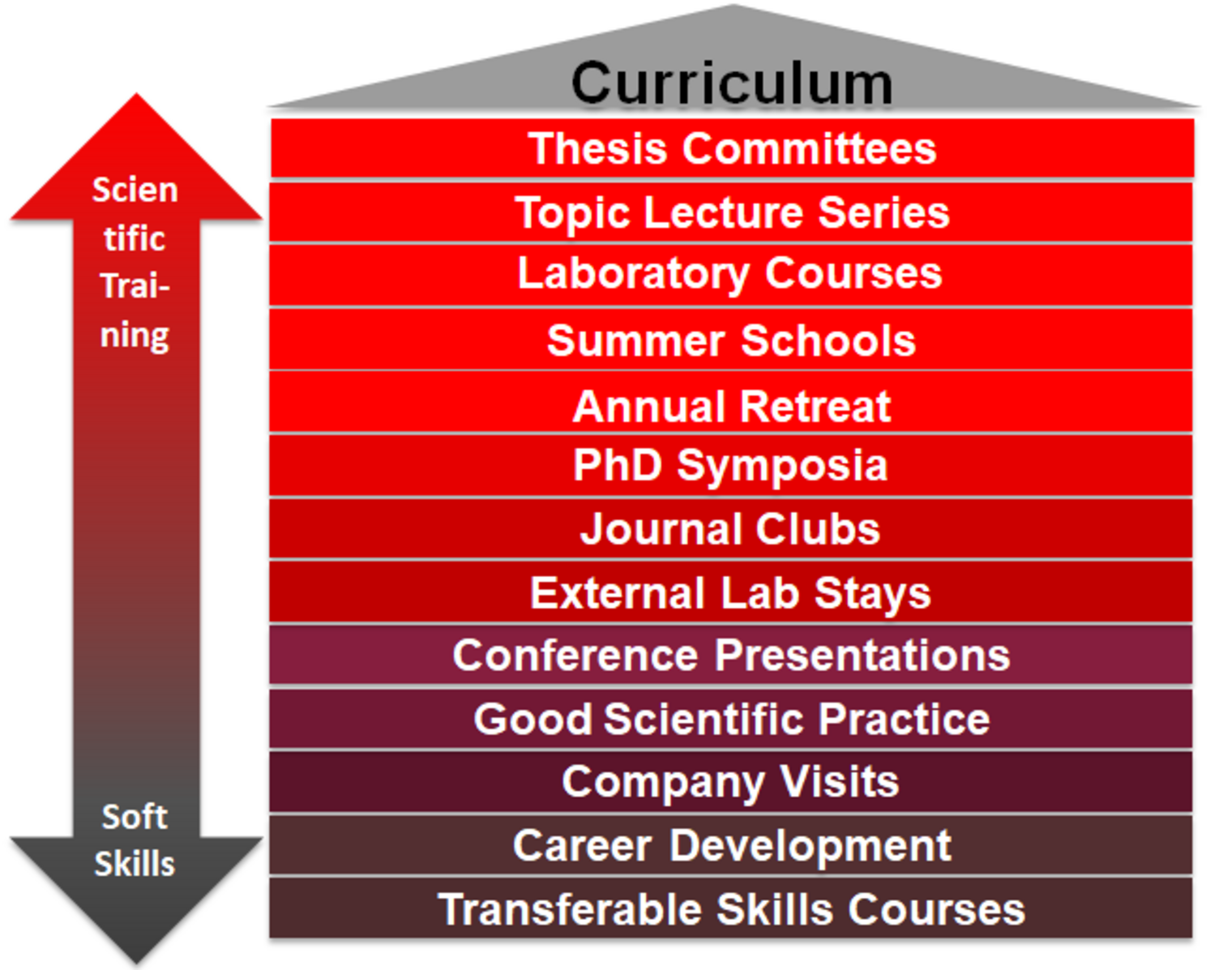HZI International Graduate School
The HZI International Graduate School for Infection Research provides an innovative structured PhD programme within the field of Infection Research. Implemented at the campus of the Helmholtz Centre for Infection Research in Braunschweig together with its partner universities the HZI Graduate School has created an electrifying environment where young researchers are stimulated to exchange knowledge with their colleagues, peers and leading scientists from all over the world. In addition to intensive scientific training, the young researchers have the possibility of improving their soft skills and advancing their interdisciplinary knowledge in preparation for the job market.
The aim of the graduation programme is to strengthen the knowledge of the doctoral researchers within the field of infection research. The main focus is on the complex interaction between host and pathogen during infection with special attention to translational science. The curriculum consists of a three-year research project as well as state of the art lectures on relevant topics, symposia, summer schools, retreats, and scientific presentations. Various networking and collaboration-building events are also part of the programme. The doctoral researchers will intensify their scientific knowledge and soft skills. The programme is designed to prepare young scientists for the next step of their career.
Structure of the curriculum in detail
Thesis Committee
The supervisor together with the doctoral researcher assemble a Thesis Committee. According to the company agreement, the Thesis Committee is composed of the supervisor and two other experienced scientists preferably from other disciplines. The Thesis Committee helps to design and monitor the progress of the PhD project. It meets regularly and gives advice in a constructive manner.
Topic Lectures
Each topic lecture series includes eight lectures on a defined topic (such as cell biology, immunology and structure biology). A variety of different lecture series is offered, the doctoral researchers have to participate in five of them. All topic lectures are modular and are repeated.
Laboratory Courses
These courses offer training in special areas and are organized by the research groups which are experts in their field (e.g. flow cytometry, microscopy, micro-array, cell sorting, handling of mice).
Summer Schools
Summer Schools are dedicated to infection research and related topics. They include state of the art scientific questions and technologies. The schools comprise one week of intensive training with a seminar programme presented by invited speakers as well as workshops within small groups and poster sessions/talks presented by the participants.
Annual Retreat
Once a year, all doctoral researchers and their supervisors meet during the retreat. Each doctoral researcher presents the progress of the PhD project. An accompanying programme with keynote lectures and networking complements the two-day event.
PhD Symposium
Once a year, all doctoral researchers meet for the PhD Symposium without their supervisors. They present their work either in a talk or with a poster and chair individual talk sessions.
Journal Clubs
Annual presentation and participation in departmental journal clubs.
External Lab Stays
To learn new techniques and to acquire methodological knowledge, a stay in external partner laboratories is possible.
Conference Presentation
During the PhD time, doctoral researchers either present a poster or give a talk on an external international conference. This also provides the opportunity for international networking with experienced scientists.
Good Scientific Pratice
Attendance of a GSP course is mandatory.
Company Visits
Company visits are intended to promote contact with regional and national companies and increase the exchange between research and practice.
Career Development
HZI's Department of Human Resources Development offers a range of counseling and training opportunities to doctoral researchers in preparation for entering the job market.
Transferable Skills Courses
In addition to the scientific training, a number of transferable skills courses are part of the curriculum. These include for example scientific writing, intellectual property issues, project management, research management training and intercultural communication.
Events
In addition to intensive scientific training, the HZI International Graduate School for Infection Research offers PhD students the opportunity to strengthen their own professional and interdisciplinary skills through a broad range of courses and events. The courses are offered in German and English.
Here is a small selection:
- Good Scientific Practice
- Scientific Writing
- Software courses e.g. data analysis and data presentation, graphical illustration, etc.
- CareerCheck
- Annual Retreat
- Summer School
- Annual PhD Symposium
Application
We invite highly motivated applicants
The three-year study programme is aimed at university post-graduates (MSc/Diploma) from the life sciences as well as those who have graduated in human or veterinary medicine and bioinformatics. Applicants should be highly motivated, have an active interest in the field of infection biology and expertise in laboratory practices.
The programme is well supported by a network of scientists and supervisors. PhD candidates will complete the programme as highly qualified scientists in infection research and be competitive for the job market.
Excellent English skills are a basic requirement as the programme is offered in English.
Application
We offer an online application tool under: https://hzi.opencampus.net
Free PhD positions
Contact



Graduate Schools at HZI Sites
The HZI sites offer graduate programmes with different research foci in cooperation with the respective partner universities. If you are interested in one of the programmes, you can find the respective contact persons on the linked websites.
Würzburg: Helmholtz Institute for RNA-based Infection Research (HIRI)
- Graduate Programme RNAmed
- Graduate Programme „RNA & Infection“
Saarbrücken: Helmholtz Institute for Pharmaceutical Research Saarland (HIPS)
- Graduate School Natural Products Research
- Graduate School TALENTS
Hannover: Centre for Individualised Infection Medicine (CiiM) / TWINCORE - Centre for Experimental and Clinical Infection Research
- BIOMEDAS
- MD/PhD programme Molecular Medicine
- PhD programme „Infection Biology“ and „DEWIN”
- KlinStrucMed
- StrucMed

